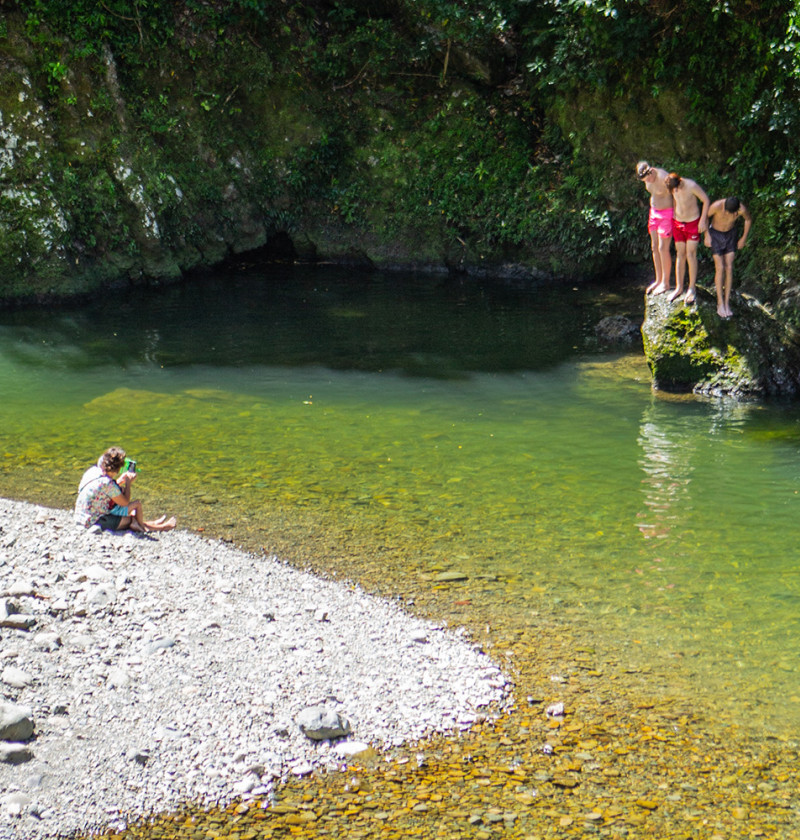Clauses 3.2 and 3.4: Active involvement of tangata whenua and engagement with the wider community


The NPS-FM requires councils to engage with communities when implementing the NOF. The NPS-FM also has specific obligations about actively involving tangata whenua in the management of freshwater, which go beyond the general duty to engage with communities. This is a necessary part of giving effect to Te Mana o te Wai. The obligations are set out in clause 3.2 and clause 3.4.
The active involvement of tangata whenua should be to the extent they wish. It does not create an obligation on tangata whenua to engage in any particular way. Councils should take direction from tangata whenua to determine how much they wish to be involved.
Tangata whenua should be invited to develop and implement mātauranga Māori tools for monitoring. Regional councils must also work collaboratively with tangata whenua and enable them to identify Māori freshwater values and to be actively involved in decision-making processes relating to Māori freshwater values, to the extent that they wish.
Regional councils must work with tangata whenua to investigate other formal mechanisms to share or transfer decision-making and management of freshwater. Any decisions the council makes about those formal mechanisms must be transparent, and information about the decisions, what was considered and the reasons they were made, must be publicly available.
These obligations are in addition to any already existing in other legislation, including Te Ture Whenua Māori Act 1993, the Local Government Act 2002, Treaty settlement legislation, iwi participation legislation and the Treaty of Waitangi. Additional obligations may also be set out in existing Mana Whakahono ā Rohe agreements and joint management agreements.
When working with tangata whenua, councils have to recognise and provide for the relationships of Māori and their culture and traditions with their ancestral lands, waters, sites, wāhi tapu (sacred places) and other taonga.
The involvement of tangata whenua should not end when the freshwater plan is written. Tangata whenua should be involved (to the extent they wish) in monitoring, reviewing and updating the planning framework, in response to new information.
Councils are required to engage with communities, too. Not all parts of the community with interests in freshwater have equal opportunities to engage; they may lack access to resources and experts. Councils should be mindful of these inequities in engagement with both tangata whenua and communities, and endeavour to provide engagement opportunities and an even playing field, as far as possible.
Active involvement of tangata whenua in writing plans and making decision-making processes requires respectful and trusting relationships between tangata whenua and councils. Councils should focus on building knowledge and capacity within staff and governance, to allow these relationships to grow, as well as creating processes and mechanisms for involvement.
Tangata whenua have the expertise and mātauranga Māori to be involved in freshwater management. They are the only people who can identify Māori freshwater values and who share or hold certain information or knowledge. Best practice engagement on this reflects te ao Māori (a Māori world view). Councils should have robust mechanisms to protect sensitive intellectual property.
The issues, aspirations and kaupapa of tangata whenua about freshwater may already be clearly set out in existing documents, such as iwi management plans, reports on significant sites and Waitangi Tribunal reports. Council staff should be familiar with this before seeking more information from tangata whenua.
Tangata whenua may be well resourced to participate and share their mātauranga Māori, or may need assistance and resources to enable them to be involved to the extent they wish. Councils should work with tangata whenua to identify and remove any barriers to their participation. That may mean providing resources or access to technical experts.
Where practical, it is best practice for councils to map out all engagement needs to determine how best to sequence or combine engagement on regional matters. Many national reforms are being implemented, requiring tangata whenua engagement in different regional and district plan processes. Staging engagement appropriately can minimise capacity issues within iwi and hapū communities. Importantly, although the NPS-FM requires quality engagement, it does not prescribe exactly how this must be done.
The process of engagement, active involvement, collaboration and decision-making should be mana enhancing. It must be informed by the principles of mana whakahaere, kaitiakitanga and manaakitanga (these are set out in clause 1.3(4) of the NPS-FM). Mechanisms to achieve this should be discussed with tangata whenua.
Involvement in developing and running monitoring programmes is a tangible way for tangata whenua to exercise kaitiakitanga and take part in the ongoing implementation of the NPS-FM. It can help tangata whenua connect to their water bodies, and, in doing so, provide for their well-being. Monitoring methods should incorporate mātauranga Māori to the extent tangata whenua wish. Tangata whenua are the group that hold the expertise to monitor and report on those matters. They may also wish to be involved in monitoring and reporting on other attributes.
Further information to support implementation:

Clauses 3.2 and 3.4: Active involvement of tangata whenua and engagement with the wider community
July 2022
© Ministry for the Environment